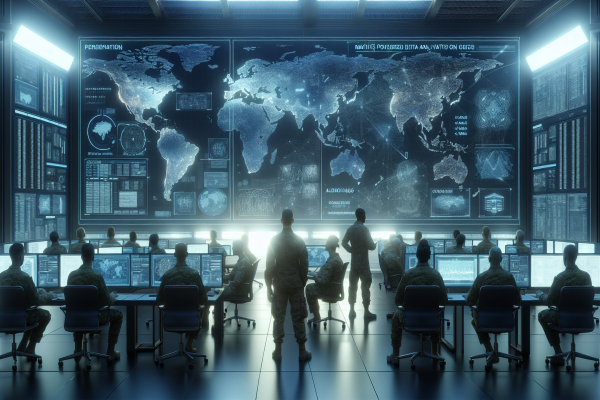In his groundbreaking book "T-Minus AI," Michael Kanaan, the first Chair of AI for the U.S. Air Force, provides an unprecedented look into how artificial intelligence is reshaping global military power. As tech enthusiasts and professionals, understanding this transformation is crucial for grasping AI's broader implications.
The New Battlefield: AI as a Strategic Asset
Unlike traditional military technologies, AI represents a fundamental shift in how nations project power. According to recent Department of Defense reports, AI capabilities now directly influence global military rankings. For instance, DARPA's AI Next campaign has invested $2 billion in developing next-generation AI technologies, demonstrating the high stakes in this new arms race.
Critical Infrastructure: The Foundation of Military AI
Modern military AI success rests on three crucial pillars:
1. Computational Sovereignty
Countries are racing to develop indigenous AI computing capabilities. China's investment in quantum computing and supercomputers has grown by 300% since 2015. The U.S. Department of Defense's Joint AI Center operates with a $1.3 billion annual budget, focusing on AI infrastructure development.
2. Data Control
Military AI effectiveness depends heavily on data quality and quantity. Israel's innovative approach combines civilian and military data pools, resulting in AI systems that are 40% more accurate in threat detection. The Pentagon's Project Maven demonstrates how focused data collection can improve military intelligence analysis by 75%.
3. Talent Development
The competition for AI talent has become a critical national security issue. China's "Thousand Talents Plan" has successfully recruited over 7,000 AI researchers globally. Meanwhile, the U.S. Military's Digital Service offers competitive salaries up to $200,000 to attract top AI talent.
Military AI Applications: Beyond the Battlefield
Current military AI applications extend far beyond traditional combat:
- Cybersecurity Defense: NATO's AI-powered threat detection system processed over 1 billion events in 2024, identifying threats 300% faster than traditional methods.
- Logistics Optimization: The U.S. Army's AI logistics system reduced supply chain costs by 25% while improving delivery accuracy by 40%.
- Intelligence Analysis: AI systems now process 85% of initial intelligence data, allowing human analysts to focus on complex pattern recognition.
Ethical Considerations and Future Challenges
The rapid advancement of military AI raises crucial ethical questions. The Google Project Maven controversy led to new ethical guidelines for military AI development. International cooperation efforts, like the U.S.-EU AI Alliance, are working to establish shared principles for responsible military AI deployment.
Key Takeaways
- Military AI capability is becoming a primary indicator of national power
- Success requires excellence in computing, data, and talent
- Applications extend beyond traditional military operations
- Ethical frameworks are crucial for responsible development
Want to stay ahead in the AI revolution? Visit rashflash.ai to discover how our AI solutions address critical security and strategic needs.


